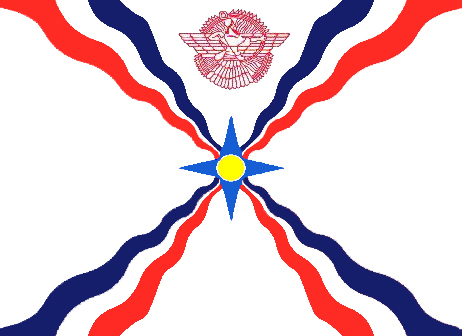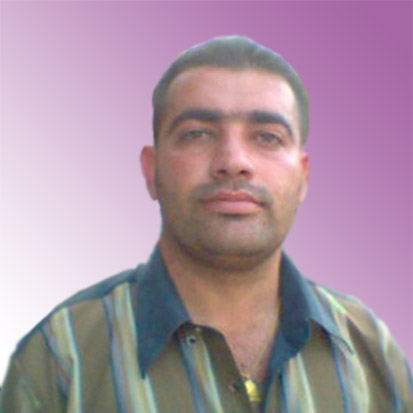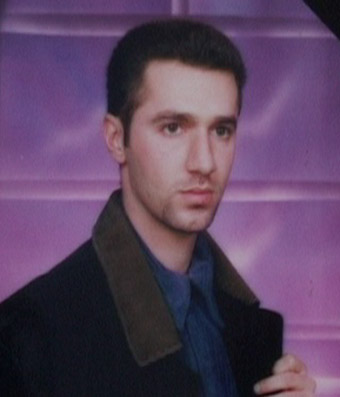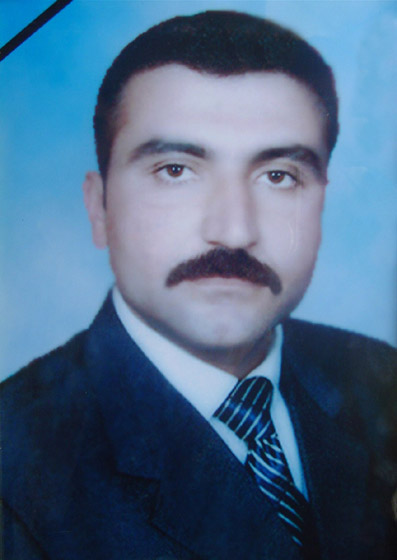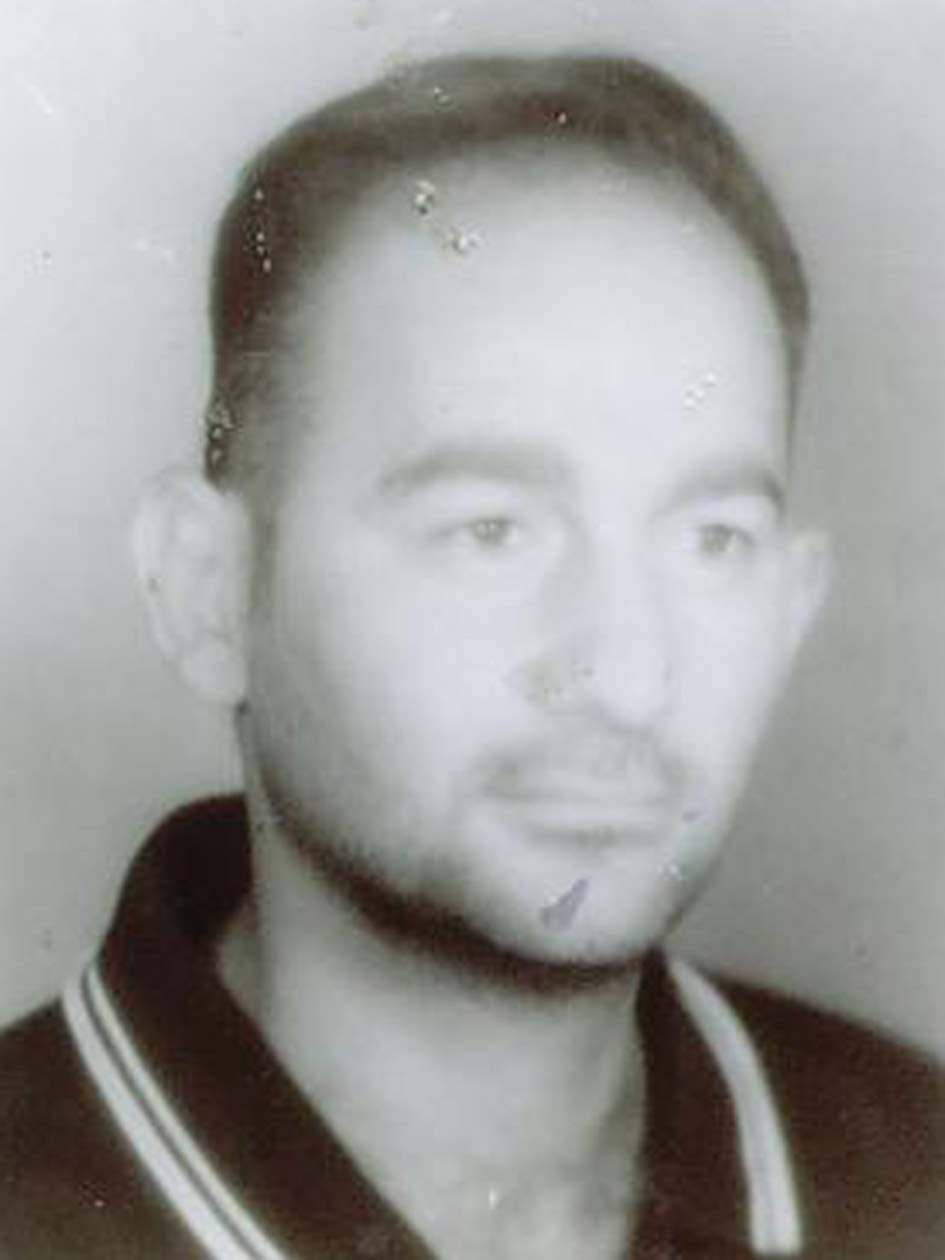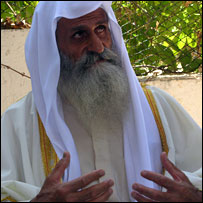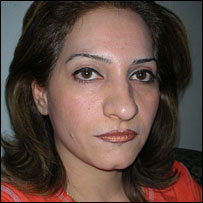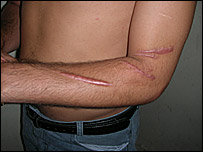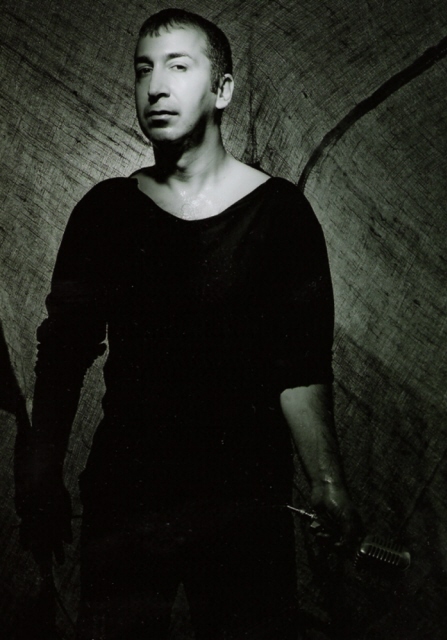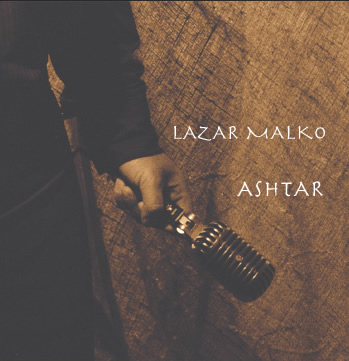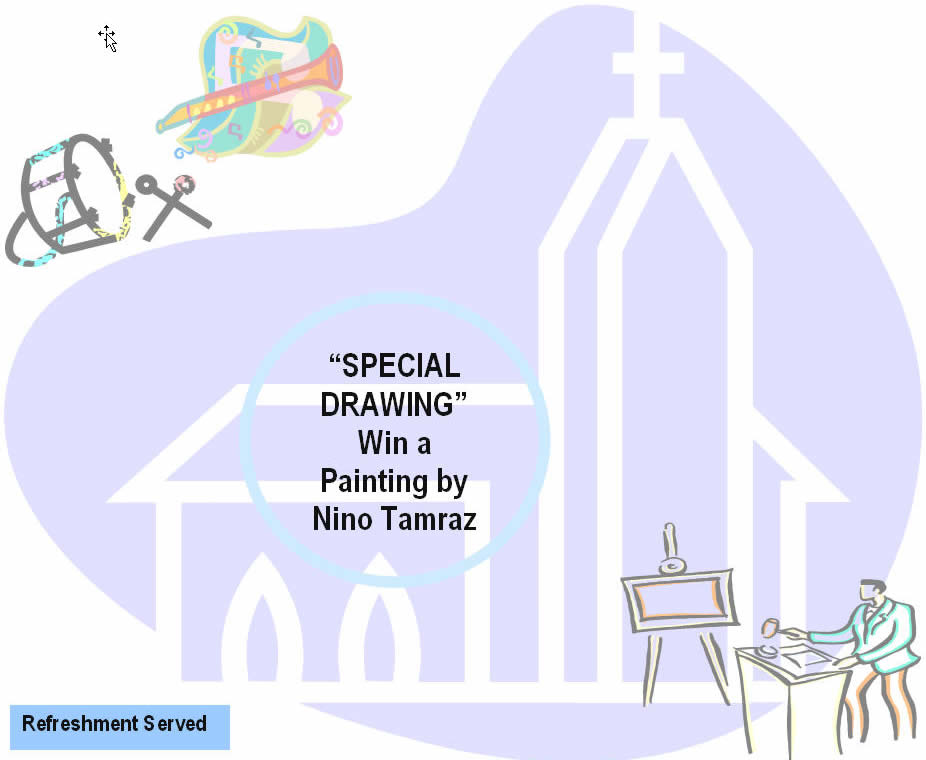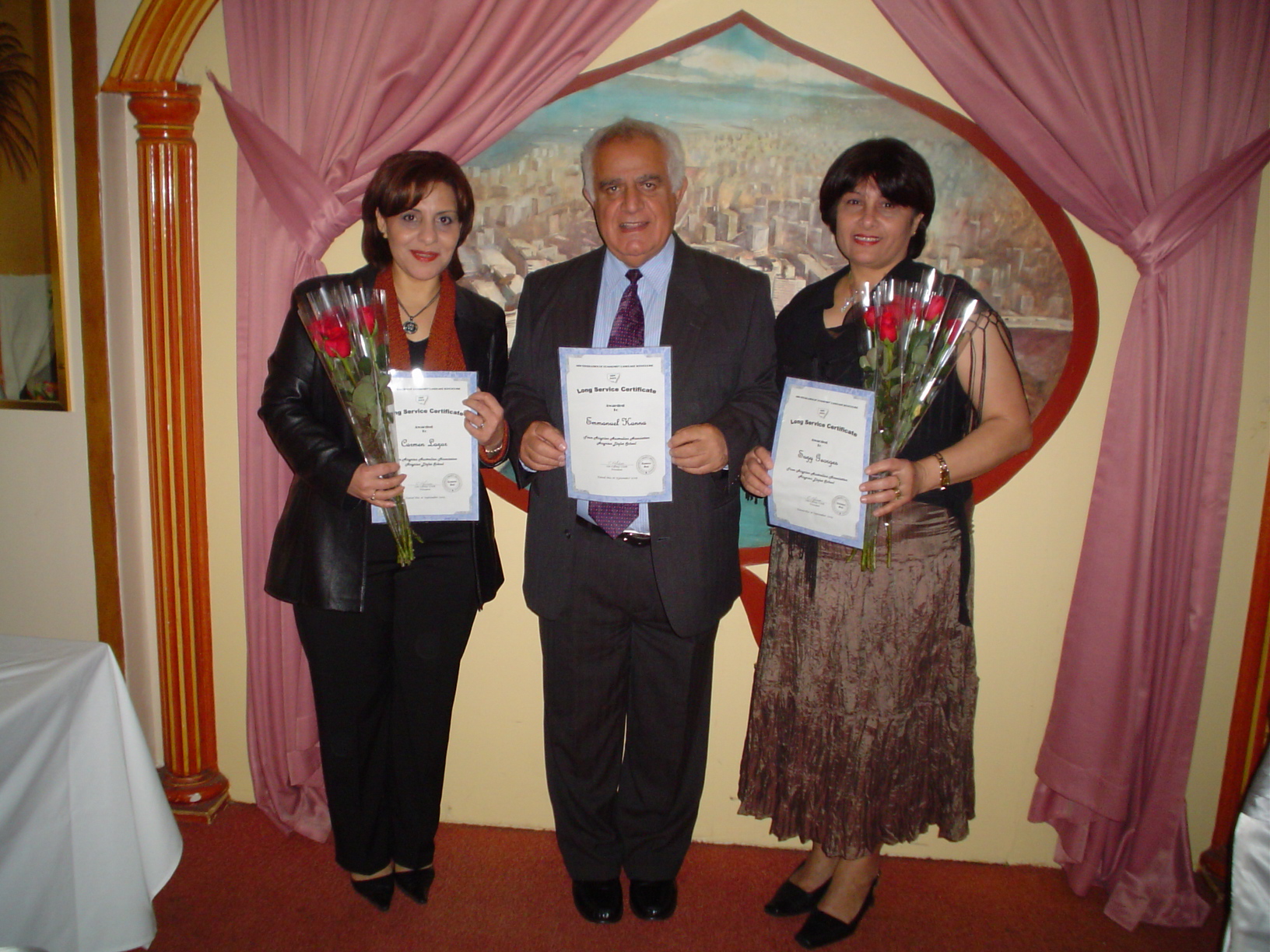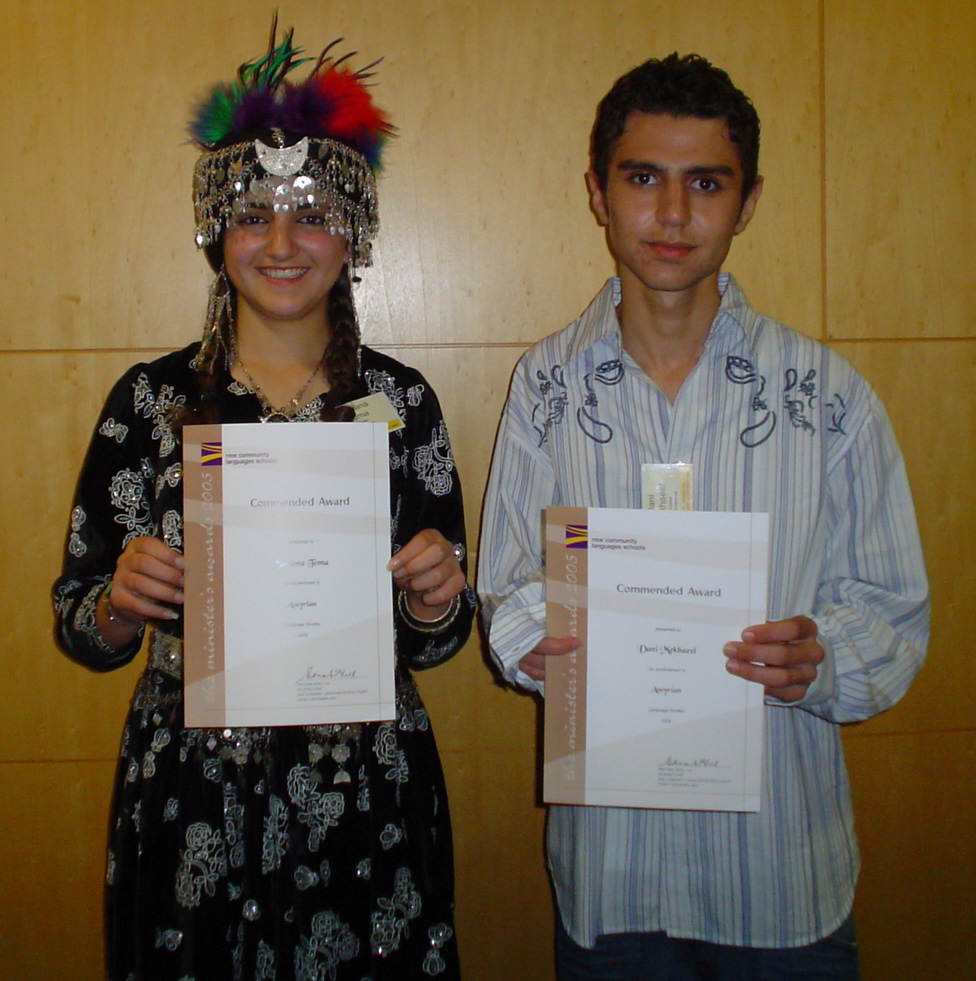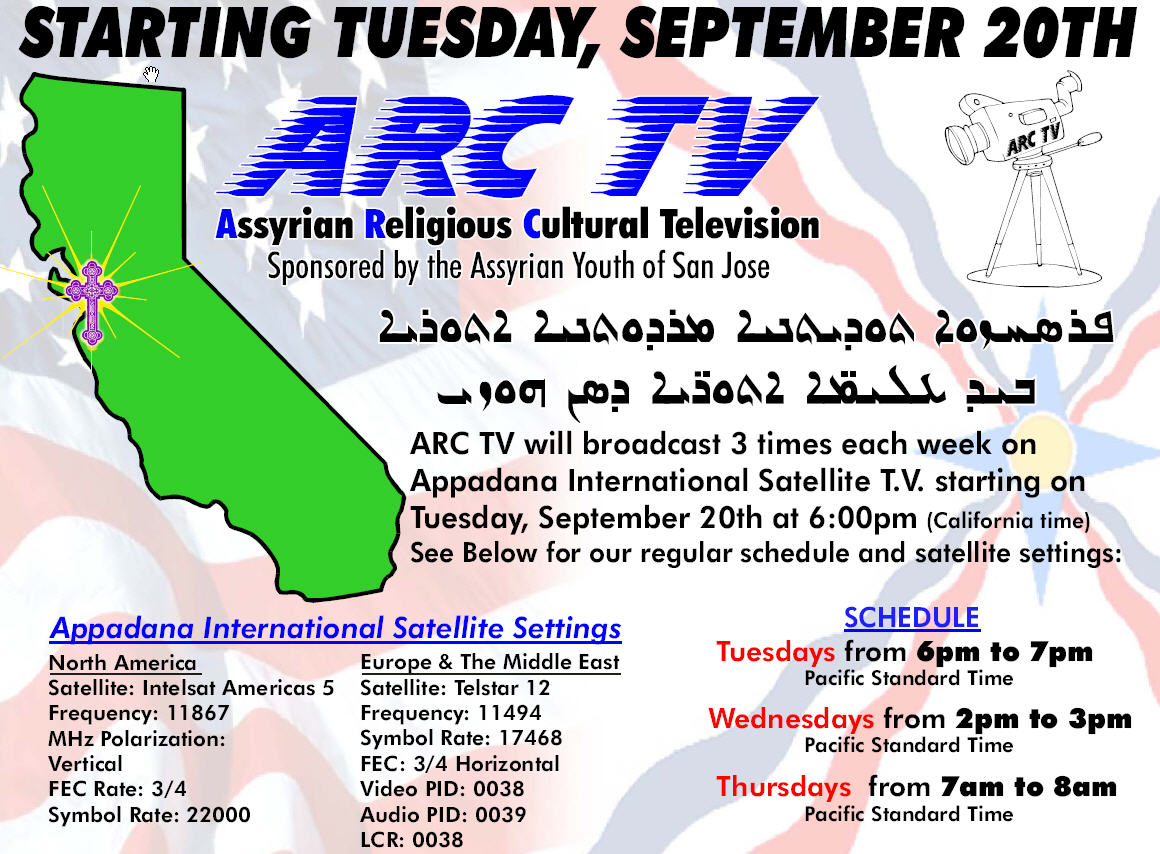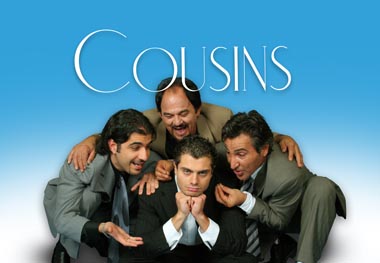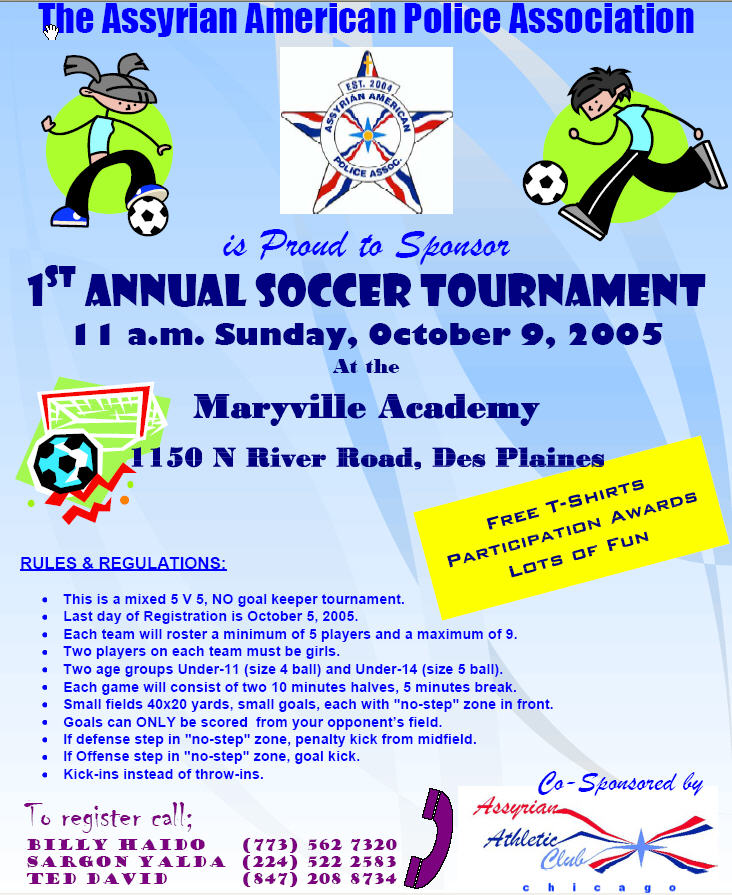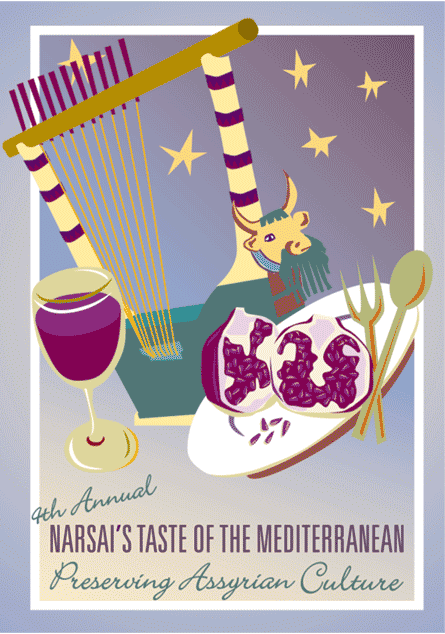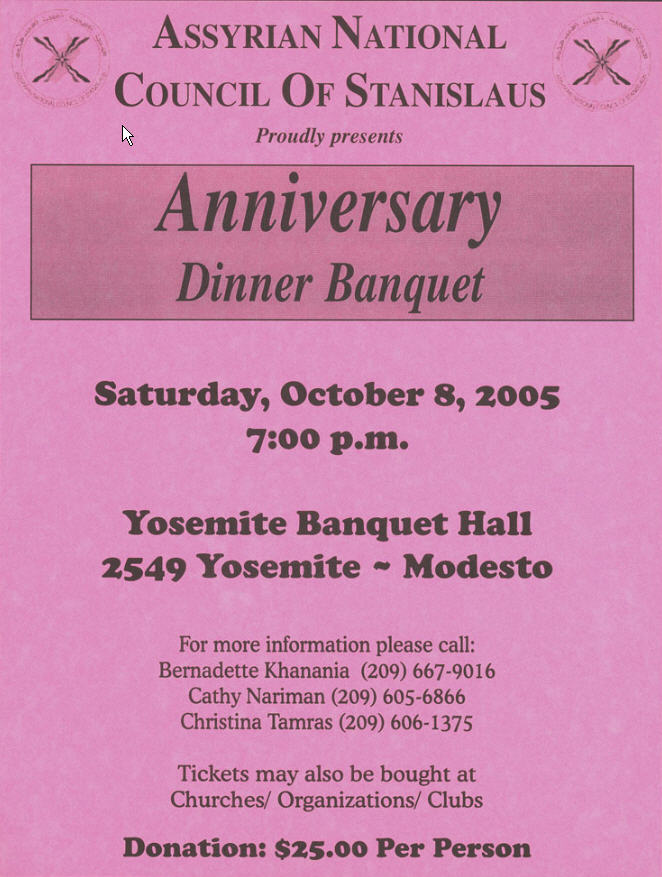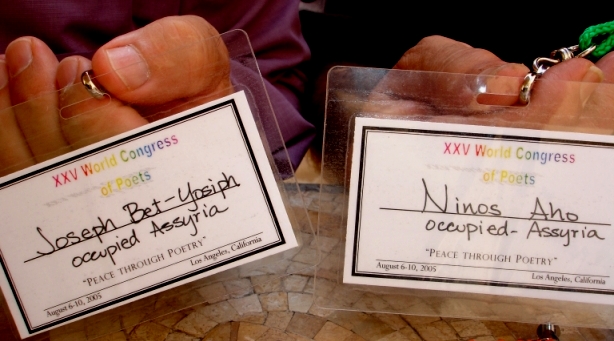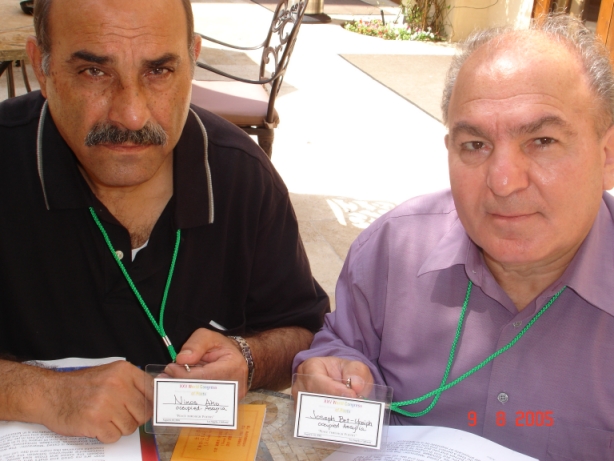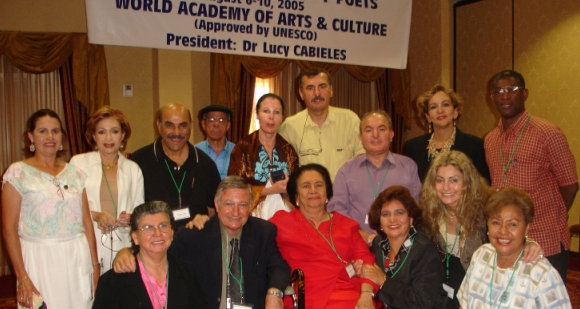The Yezidi Kurds and Assyrians of Georgia:
The Problem of Diasporas
and Integration
into Contemporary Society
Iraklii Chikhladze
Executive Director,
International Eurokavkazasia Association
Tbilisi, Georgia
Giga Chikhladze
Executive Director, Profile Journal
Tbilisi, Georgia
We have deliberately selected the Assyrians and the Yezidi Kurds from among numerous
ethnic minorities living in Georgia as a subject of this article because both have no independent national-autonomous entities except their autonomies in the north and northeast of Iraq. This shows that the diasporas cannot communicate with their historical homeland at the state level. At the same time, the expected state structure of postwar Iraq may greatly affect the life of the Kurdish and Assyrian communities in Georgia that share some of the problems with other ethnic minorities and have specific concerns of their own. There are indications that these communities have stepped up their activeness
partly in response to the Georgian domestic problems and partly because of the coming geopolitical changes in the Middle East. The Southern Caucasus has been serving as home to the majority of the Kurds and Assyrians since the early 20th century when their ancestors fled Turkey.
Today their diasporas may gain more weight in the context of possible geopolitical changes that are expected soon.
Survey of History
Assyrians in Georgia were first mentioned in the 6th century A.D. It was at that time that 13 Assyrian monks from the city of Urhai (Edessa, Mesopotamia) came to Georgia. History knows them as 13 saint Assyrian fathers. Later scholars likened their contribution to the enlightenment of the newly Christianized Georgia to what Saint Nino had done to convert the pagans. The monasteries and churches they founded are still standing.
The Yezidi Kurds probably came to Georgia during the reign of czar Georgy III (second half of the 12th century) when one of the Kurdish tribes had to leave Mesopotamia and settle in Armenia.
Later some of them started serving the Georgian czar. It is known for a fact that two Yezidi Kurds, brothers Ivo and Zaa adopted Christianity and new names: Ioane and Zakharia Mkhargrdzeli. Later they earned great fame as military leaders and personal bodyguards of Queen Tamar (late 12th-early 13th century).
When the Byzantine Empire had fallen Turkey tried several times to spread its influence to its neighbors.
For 300 years, starting with the late 15th century Persia and the Ottoman Empire were waging wars for the domination over the Caucasus and the Middle East. The Assyrians and Yezidi Kurds who by that time had lost their statehoods were the first to be caught in the hostilities. Georgia also had to fight for its independence against Turkey and defended it.
Georgia remained a free and non-Muslim state that attracted its neighbors living under Turks. According to historical documents in the 1760s Assyrians and Kurds asked the Georgian czar Irakly II for help—he had already been engaged in a secret correspondence with the Patriarch of the Assyrian Church of the East Mar Avraam and wanted closer ties with the Assyrians and Yezidi Kurds. The right moment came on 25 September, 1768 when the Ottoman Empire declared a war on Russia.
After long negotiations Russia convinced Irakly II to enter a war against Turkey. It was on his instruction that Opisanie sosednikh s Gruziey stran i narodov (Description of Lands and Peoples Adjacent to Georgia) was drawn for Count Nikita Panin who received it from Georgian envoy Artemii Andronikashvili.
The document gave much space to Kurds and Assyrians who, Irakly expected, could play a certain role in the war. It said, in particular: “The Assyrians who are living between Persia and the Ottoman Turks and who are numerous and own mountains and valleys are all Christians; there are several millions of them and they have military experience. It is for a year now that they have been sending clerics, priests and bishops, and princes with requests to be allowed to move to our country.” The document says less about the Kurds yet Irakly specially pointed to their military skills.
In April 1770, according to his understanding with Russia, Irakly II sent his troops toward Akhaltsikhe.
Simultaneously Assyrian Bishop Isaiah left Tbilisi. He was carrying letters to Assyrian Catholicos Simon and Kurdish leader Choban-aga in which the Georgian czar invited them to fight together against their common enemy, Turkey, and promised his all-round support. These plans failed because Russian General Totleben, Irakly’s ally, changed his mind and turned his detachment back to Kartli that amounted to a betrayal.
In September 1770, the Georgian czar got replies to his letters. Assyrian Catholicos Simon wrote in a letter dated July 1770: “We all thank Jesus Christ for your benevolence to us… An army of 20 thousand will be at your disposal… Please, send us a grant charter that would encourage us and allow us not to be afraid of the Ottoman Turks. Approach us so that we can see each other better. After that we shall be prepared to die for your happiness… We all hope to see the time when we can serve you with dignity.” Assyrian
Bishop Isaiah wrote: “I went to Islamic Kurdistan to meet the Yezidi leaders and show them your letter.
They were very happy, placed the letter on their heads and became your humble servants. They are praying for your victory and ask you to give them the fortress of Khoshaba. Give them the fortress so that they can gather together there; they do not need cattle. They ask you for this favor—this is what I can tell you.
They are all good warriors and recognize Choban-aga as their leader.”
Choban-aga himself confirmed this in a letter to the czar, in which he said: “We the Mahmud Yezidis ask you for a grant charter so that we can come to you safely, so that we become assured of our safety.
God knows that when we come and bow to you, you will see that we know how to serve.”[1]
Had the Akhaltsikhe operation been successful and had the Georgian czar approached the lands of the Kurds and Assyrians their unification could well have changed the geopolitical situation in the region. There is no doubt that both the Kurds and Assyrians were prepared to move against Turkey if supported by Irakly II. It was General Totleben’s betrayal that forced the Georgian czar to change his plans.
The Georgian czar not only wanted to side with the Kurds and Assyrians in his struggle against Turkey but also wanted to move them from the Middle East to Georgia. There is information that about four thousand Kurdish families did arrive and settled in Kakheti (eastern Georgia).
It was at the same time that the first Assyrian community of several dozen families appeared in Georgia. They arrived in Mukhrani (Mtskheta District) from Iran and Ottoman Empire.
When Russia signed a Turkmanchai Peace Treaty with Iran in 1828 Iranian Assyrians and Kurds got an opportunity to come to Georgia as hired hands. In the latter half of the 19th century they started arriving in great numbers. Another great wave of Yezidi immigrants occurred even later, in 1915-1917.
They fled Turkey to save their lives. There is information that not only Turks but also Muslim Kurds were also against the Yezidi Kurds. Yezidi historians believe that in one day 56 thou of their compatriots died at the hands of Muslim Kurds at the River Arax.
About 50 thou Assyrians came to Georgia and Armenia to avoid a similar sad fate in Turkey.
Yezidi Kurds in Georgia in the 20th Century: From Their Renaissance Back to Decline?
Yezidi Kurds and Assyrians arrived in Georgia in great numbers in 1915-1917. According to what they say themselves the 1960s-1980s were the best time for Yezidi Kurds: they received their own drama theater (the only in the world) and a folk dance group; days of Kurdish culture became a regular feature while the radio ran weekly broadcasts in the Kurdish language. “It was at that time that Kurdish intelligentsia
appeared:”[2] there were professors and academics, artists and actors, sportsmen and party functionaries among them.
When Georgia became independent the number of Kurds in it began to reduce: there were about 35 thou of them according to the population census of 1989; today, according to various Kurdish organizations (their figures are very close) there are not more than six thou. The share of emigrating Kurds is the highest compared to all other diasporas.
Early in the 1990s the theater and the dance group were closed down while the radio stopped its broadcasts in Kurdish. The diaspora has the following to say about the situation: “We are simply forced to migrate. The majority left not during the nationalist hysterics of the early 1990s but during Shevardnadze’s time. By the way, Gamzakhurdia said many times that he was proud of the fact that the only Kurdish drama theater in the world worked in his republic. Under Shevardnadze who preaches democracy and
equality the theater was closed down.”[3]
Before that the majority of the Kurds were urban dwellers and lived in the capital and other large cities yet in Kakheti there were several predominantly Kurdish villages. Today, they stand empty or received new migrants. Those who used to live there either left the country or moved to Tbilisi. It is interesting to note that in the capital Kurds form compact communities mainly in the outskirts where the flats are much cheaper than in the center. The majority is engaged in hard manual labor.
The Kurdish language is taught in four schools in Tbilisi that lack curricular, textbooks and teaching aids. The children are taught mainly the spoken tongue.
Today, like in Soviet times, the Kurdish population of Georgia is mainly Yezidic. In 1937-1946 nearly all Muslim Kurds were deported from Samtskhe-Javakheti together with Meskhetian Turks; the same fate befell the Muslim Kurds from Batumi and Adzharia in general.
Today, the Yezidi Kurds believe that lack of a temple is one of their main problems. They are the followers of Yezidism, one of the earliest religions in the world yet they have never had a temple in Georgia. In 2002, there were plans to build one yet the leaders of the community could not pay for the land on which the temple was expected to stand the price that was asked. Today, there is no talk about this project.
The Organizations of Yezidi Kurds
In 1988, the Yezidi Kurds formed an organization called Runai that existed from 1988 to 1998. Later they set up a Society of the Kurdish Citizens of Georgia that became a Union of the Yezidis of Georgia in 1998. By early 2002 the country had several Kurdish (Yezidic) structures. According to Chairman of the Union of the Yezidis of Georgia Rostom Atashov, the majority did nothing to protect the interests of the Yezidis.4 He has said: “They are much more concerned with their personal interests. Certain politicians
profit from the continued existence of these organizations because they can use them at opportune moments.” The majority of the Kurdish diaspora is convinced that today only the Union of the Yezidis and the International Foundation for Protecting the Rights and the Religious-Cultural Heritage of the Kurds (registered in May 2001) are the only efficient structures.
In 2003, the Union of the Yezidis with the support of the New Right Party started publishing a Russian-language newspaper. The first Kurdish newspaper Glavezh (The Morning Star) is published irregularly.
Ethnic Self-Awareness: Activization under Pressure
The largest number of Kurds and Yezidis are living in Turkey, Iran, Iraq, Syria, Lebanon, and Germany.
On the former Soviet territory they are concentrated in Russia, Georgia, Azerbaijan, and Armenia.
They are mainly Muslims, the smaller part of them follow Yezidism. All clashes that happened between them in the past were triggered by religious contradictions. In the Soviet Union there were no clashes because all religious and ethnic issues were carefully avoided. This was a time of partial assimilation that was cut short in the early 1990s when leaders of the first wave of national-liberation struggle headed by Gamsakhurdia came to power in Georgia. Ethnic tension and ethnic conflicts became common. In response the diasporas were forming their ethnic self-awareness at a fast pace. The Yezidi Kurds were no exception.
Under Shevardnadze they started defending their rights—today this has become especially clear. In the religious sphere the situation is less clear: though being aware of their ethnic affiliation the Yezidis celebrate Christian Orthodox and Catholic Christmas together with the rest of the country, as well as Georgian national holidays. This is an eloquent fact: first, for many centuries the diaspora could not practice its religion in Yezidi temples; second, all local national minorities appreciated Georgian tolerance,
evident at all periods except the last decade.
The community is not represented in the higher echelons of power yet Levan Gvindzhilia, Chairman of the Georgian State Linguistic Chamber, says: “The Kurds are an inalienable part of Georgian culture. I should say that many of their complaints and demands are not justified. In a democratic state the authorities look after all population strata not only the ethnic diasporas. Democracy cannot accept such division. Under the Georgian Constitution each person has the right to profess any religion; all ethnic groups are equal in Georgia. All people are living in equally difficult economic conditions. The
authorities should not be blamed for an absence of Kurds from the state structures. The deputies are not elected because of their ethnic affiliation—they are expected to have their voters and to know the Georgian language. It was only in the U.S.S.R. that they compiled lists and quotas for the deputies: one milkmaid, two tea growers, three Armenians, etc. In a democratic state that would spell violation of the laws and Constitution.”[5]
Complete Integration of the Kurds (Yezidis) into Society—Is It Still Far Away?
It turned out that Georgian society is not ready to adequately respond to the desire of the Yezidi Kurds to become its component part. Those of the members who tried to consolidate the diaspora’s position in Georgian society found themselves in a conflict with it. Here is a confirmation. At a conference held in October 2002 the Kurds voiced their disapproval of the authorities. Several newspapers and journals published in Tbilisi responded with highly subjective publications that accused those who spoke at the conference of anti-Georgian feelings, separatism and extremism with no reason at all. Some of them even carried articles entitled: “Georgian Ocalans,”[6] “Is There a Threat of Kurdish Separatism?” [7] “Shevardnadze Is Fanning a Conflict Between the Kurds and the Georgians,”[8] “Kurds Are Threatening Georgians,” [9] etc. The press treated negatively the fact that the Kurds asked the authorities to pay attention to their needs. Such response (even if of a small part of the media) testifies that today people as a whole are not prepared to look at the diaspora as part of Georgian society.
The Kurdish and Yezidi communities interpreted these publications as an attempt of certain political forces to provoke ethnic tension and to divide the diaspora. Some people even said that it was an attempt to use the Kurdish issue against the president of Georgia: “Kurds are a good target for such provocations because they are defenseless. Our diaspora is poorly organized, politically indifferent and mainly poorly educated. Similar attempts aimed at other diasporas are fraught with complications: there is Russia
behind the Russians, Armenia behind the Armenians, etc.”[10]
It seems that these publications were prompted by the fact that Georgian society is still not ready to accept the Yezidi Kurds as its part. This however does not justify the publications that infringe on the democratic rights and freedoms not only of the Kurds and Yezidis but also all Georgian citizens irrespective of their ethnic origins.
The Assyrian Community
Few people know that there is a small namesake of one of the most powerful states of the ancient world, Assyria, in Georgia. I mean the village of Asurety some fifty kilometers away from Tbilisi. I do not know how it happened but I do know that the relations between Georgia and Assyrians started several centuries ago.
According to the 1989 population census, there were 8,600 Assyrians in the republic, that is, they were fewer than the Kurds. The Assyrian National Congress insists that there were much more of them, up to 12 thousand. Half of them left Georgia in the 1990s; today there are approximately six thousand. Like the Kurds they prefer to live in compact groups; their villages are scattered across the republic.
The largest and the oldest of them is Dzveli Kanda (Mtskheta District) with 350 families (about 1,500 people), 80 percent of them are Assyrians. In the village of Gardabani there are 110 families (600 to 700 people). It is commonly believed there are 2,000-2,500 Assyrians living in Tbilisi where one of the compact settlements is found in the Kukia locality (about 800 people). There are Assyrians in Kutaisi, Batumi, Senaki, Zugdidi, and Zestafoni.
More About History
I have already written that Assyrians started arriving in Georgia in the latter half of the 19th century; they mainly settled in Tiflis and became Russian citizens. By the end of the 19th century there were over five thousands of them living in Georgia.
It was at that time that the Tiflis Assyrians received an Assyrian church, a school, and a newspaper Modynkha (The East) in their tongue. In 1912, Assyrians acquired a drama circle, the first in their history.
There was a theater troupe headed by public figure Freidun Aturaya that acted in the Zubalov People’s Theater (now the Mardzhanishvili Theater). During World War I the local Assyrian community organized a Committee in Tiflis aided by the government that helped Assyrian refugees. At that time the Assyrians fled Turkey in great numbers; the Assyrian National Council in exile also functioned in the Georgian capital while Dr. Freidun Aturaya set up an Assyrian Socialist Party of the Transcaucasus, the first step
toward political organizations of the Assyrians of later times.
Under Bolsheviks the community published a newspaper Kokhva d Modynkha (The Star of the East), ran all sorts of circles and three newly opened Assyrian schools in Tiflis. The community flourished until 1937 when the greater part of intellectuals and the clergy was repressed, the schools and newspaper closed down. There were attempts to transfer the Assyrian written language to Latin script. Ten years later a wave of repressions returned: Assyrians were deported to Siberia and Kazakhstan in huge numbers—many of
them came back only after the rehabilitation of 1954.
In 1956, an Assyrian public figure Angelina Grigoria created an Assyrian folk dance and song ensemble, the first in the Soviet Union, and a Club of Lovers of Assyrian Literature. In 1989, a Center of Assyrian Culture was set up that in 1992 became the Assyrian National Congress of Georgia with a youth department, two groups of folk dance, and a newspaper Aviuta (Harmony). In 1996, a mission of the Assyrian-Chaldean Catholic Church appeared in Tbilisi.
The Assyrian Community Today
As distinct from other ethnic communities of Georgia the Assyrian community lost few of its members during the years of independence. What is more, even those who left home to make money in other countries did not sell their houses and preserved their Georgian citizenship. Many of them do come back.
According to the Assyrian National Congress of Georgia, the larger part of those who had gone to make money in the Krasnodar Territory and Moscow returned because of the wave of chauvinistic sentiments in Russia (especially in the south and in Moscow). Some of those who had emigrated to Germany also returned.
From the very beginning the migrants were mostly the Russian-speaking members (who know next to nothing of Georgian) of the community because they had found it hard to integrate into Georgian society in which the Russian language no longer plays the role it used to play. Such people cannot find jobs and have to live in a certain limited linguistic space. The Assyrians of Gardabani (Kvemo Kartli) have found themselves in the most difficult situation. They are divided according to their confessions: there are Catholics and Orthodox Christians among them; until recently there were no mixed marriages between the two religious communities.
The Gardabani District is mainly populated by ethnic Azeris who speak poor Georgian. This has placed the local Assyrians into a reservation of sorts. On the one hand, they cannot assimilate and continue living as a community; on the other, they are excluded from society by the integration processes going on everywhere in the country.
Those who live in another Assyrian village, Dzveli Kanda, are in a different situation—the local Assyrians have a good command of Georgian (which they use in everyday life); many have Georgian relatives. The same applies to the Assyrians of western Georgia. They integrate easily and less frequently leave their homeland.
Teaching the Assyrian language is another problem: it is taught in the village of Dzveli Kanda and in Tbilisi where there are special language courses at the Assyrian-Chaldean Catholic Church headed by priest Benyamin Bit-Yadgar. Like the Kurdish community, the Assyrian village school and the courses in the capital lack books and textbooks in the Assyrian. The local Assyrian community maintains close contacts with the Assyrian autonomy in the north of Iraq (the historical homeland of all Assyrians) that periodically sends them textbooks, the number of which are not nearly enough.
In August 2002, the sport teams of the Assyrians of Georgia took part in the Pan-Assyrian Games (the so-called Tammuz Games) in the city of Urmia (Iran) that in the 18th century was one of the largest Assyrian cultural centers. The Georgian Assyrian team came third—the fact that says that the community has a future.
What Next?
There is an opinion that the relations between the state and ethnic minorities can be regulated through laws. The ethnic communities agree with this. “We are convinced that a law on ethnic minorities is necessary and that it can be used to regulate the relationships between the state and the communities. Today we cannot do this. This is especially important for the minorities that have no statehoods anywhere in the world. I have in mind not only Assyrians but also the Kurds and the Yezidis.”[11] Members of the Kurdish diaspora believe that its continued existence is threatened. Georgy Shamoev has said: “The Kurdish diaspora in Georgia is a political, economic, and social outsider. If
we fail to overcome this inferiority complex the Georgian Kurds as a community will be doomed to extinction.”[12]
Epilogue
The above suggests at least two conclusions.
First, the communities have no representatives in the echelons of power; they play an insignificant role in the country’s social and political life. The international and regional conferences and seminars convened to discuss the problems of diasporas and ethnic minorities often ignore the problems associated with the Kurds and Assyrians living in Georgia. Their political passivity increases the communities’ isolation from Georgia’s public life while their poor command of Georgian and the difficulties of learning it make their isolation from the rest of the population even more complete.
Second, while practically the entire population of the country is very concerned with the problem of migration the Yezidi Kurds are afraid that their community may disappear altogether [13]; at the same time, the majority of the Assyrians plan to stay in Georgia. If the economic crisis drags on and if the old territorial conflicts breed new problems more people may wish to leave the republic. On the other hand, if the country recovers one can expect many of the emigrants to come back. In addition, if an independent Kurdish state is set up in Iraq the Kurdish community in Georgia may become more active because it maintains close ties with the Kurdish autonomy in Iraq. The Assyrian autonomy in Iraq may also strengthen its position that will boost the public and political activity of the Assyrian community of Georgia.
There is no doubt that both communities will survive. The question is: how deep will they integrate into contemporary society and what role will they be prepared to play in the country’s public and political life? It seems that this will depend on the geopolitical realities and the democratic processes in the republic of Georgia.
Notes
- V.G. Macharadze, Materialy po istorii russko-gruzinskikh otnosheniy vtoroi poloviny XVIII v., Part 2, Tbilisi, 1968, pp. 230-237.
- From a speech of historian and ethnographer Kerim Ankosi delivered at a conference in the Caucasian House that discussed the problems of the diaspora of Yezidi Kurds, October 2002.
- From a speech of the former art director of the Kurd theater M. Dzhafarov at a conference in the Caucasian House that discussed the problems of the diaspora of Yezidi Kurds, October 2002.
- See: Kavkazskiy aktsent, No. 4 (53), 2002.
- From a speech at a conference in the Caucasian House that discussed the problems of the Yezidi Kurds, October 2002.
- See: The Georgian Times, No. 045, 21-28 November, 2002.
- See: Tbiliselebi, No. 49, 2002.
- See: Akhali taoba, No. 336, 6 November, 2002.
- See: Kviris palitra, 25 November-1 December, 2002.
- From an interview of President of the International Foundation for Protecting the Rights and the Religious-Cultural Heritage
of the Kurds Georgy Shamoev, 27 January, 2003 (the authors’ archives).
- From an interview of Vice-President of the Assyrian National Congress of Georgia David Adamov, 16 October, 2002 (the authors’ archives).
- See: Institute for War and Peace Reporting (IWPR), CRS No. 166, 13-Feb-03. “Gruzia: Kurdskoe menshinstvo mozhet prosto ischeznut,” 2003.
- See: Institute for War and Peace Reporting (IWPR), CRS No. 166, 13-Feb-03. “Gruzia: Kurdskoe menshinstvo mozhet prosto ischeznut,” 2003.
 The above research article was first published in the journal of the Central Asia & the Caucasus (3 /21, 2003), a publication of the Center for Social and Political Studies in Sweden. For more information and subscription request please visit www.ca-c.org.
The above research article was first published in the journal of the Central Asia & the Caucasus (3 /21, 2003), a publication of the Center for Social and Political Studies in Sweden. For more information and subscription request please visit www.ca-c.org.

